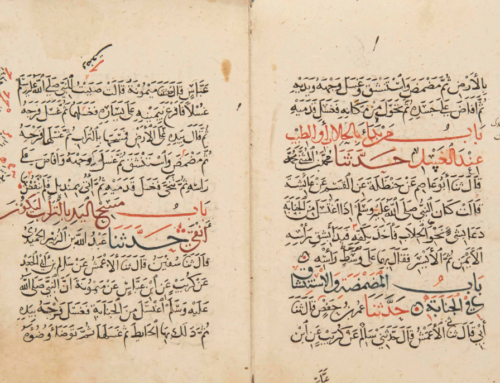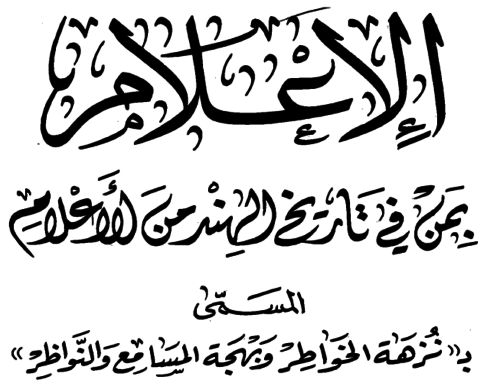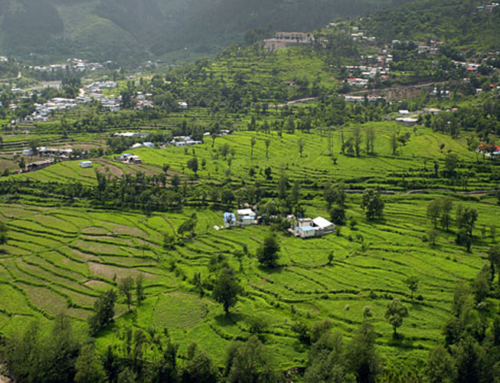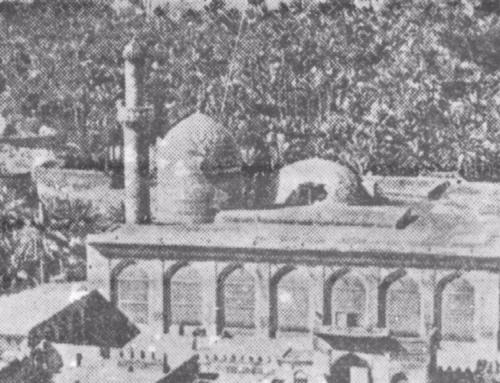Translated by Mawlana Husain Patel
Translator’s note: The following is a translation of an Urdu obituary of one of South Asia’s leading scholars of the last century, Mawlana Zafar Ahmad ‘Uthmani (d.1974). A graduate of Mazahir al-‘Ulum Saharanpur, Mawlana Zafar Ahmad had the double distinction of being a khalifah of Mawlana Khalil Ahmad Saharanpuri and also Hakim al-Ummah Mawlana Ashraf ‘Ali Thanwi. This obituary was originally published in the Al-Balagh magazine and was subsequently included in Nuqush-i-Raftagan, a collection of obituaries written by Mufti Taqi Usmani.
The wound left by the tragic demise of Mawlana Muhammad Idris Kandhlawi’s passing was still fresh when hearts were shocked with the news of the passing away of Mawlana Zafar Ahmad ‘Uthmani. [1]Mawlana Zafar Ahmad ‘Uthmani passed away in Dhu al-Qa‘dah 1394 AH (1974) at the age of 84 (translator). The intention was to write today’s editorial on another topic, but this painful news has restricted my mind and heart from any other subject aside from this.
The people of knowledge and sincerity from the subcontinent who enlightened these lands with faith, conviction and authentic knowledge of the religion are all departing, one-by-one. Each one of them leaves behind a void that seems hopeless to fill. In so far as outer knowledge, information in books and academic research is concerned, there is no lack of people to keep this afloat and perhaps it will stay this way in the future. However, what is continuously disappearing is the pristine temperament and disposition (mizaj wa madhaq) of the religion, along with the unique demonstration of piety, purity, simplicity, contentment with little, humility and sincerity — all of which cannot be acquired from books but from the company of the pious. Now there seems to be no way of making up for these losses.
Allah Most High made Deoband, Saharanpur and Thana Bhawan centres for such enlightened personalities in this century. They revived memories of the first generations of Islam through their knowledge, virtue, exertion, deeds, scrupulousness, piety, simplicity and humility, as well as their fear of Allah and turning towards Him. They proved through their actions that following the religion and its rulings with such care and diligence is possible even in the fourteenth century and that the examples of the first generations of Islam can still be kept alive today.
However, those who have spiritually benefitted from these centres of knowledge and piety are all steadily taking leave. What is truly worrisome is that the treasure that these people acquired from the elders of Deoband, Saharanpur and Thana Bhawan are departing with them. There may well still be many who praise the knowledge and virtues of these personalities. Benefitting academically from their works will also not cease. However, there is hardly anyone left today who seeks to acquire that pristine temperament and disposition along with the treasure of spiritual reformation (islah) and pious actions which can only have been acquired from these individuals; rather [the situation is so dire] that attention towards that and awareness of its importance has also been lost.
Shaykh al-Islam Mawlana ‘Allamah Shabbir Ahmad ‘Uthmani, ‘Allamah Sayyid Sulayman Nadwi, Mawlana Sayyid Husayn Ahmad Madani, Mawlana Mufti Muhammad Hasan [Amritsari], Mawlana ‘Abd al-Qadir Raipuri, Mawlana ‘Abd al-Ghani Phulpuri, Mawlana Khayr Muhammad Jalandhari, Mawlana Badr-i-‘Alam Mirathi, Mawlana Wasiyyullah Ilahabadi, Mawlana Muhammad Rasul Khan Hazarwi and Mawlana Muhammad Idris Kandhlawi — there may be many who have benefited from the knowledge and political work of these esteemed individuals, but one would be hard pressed to find those who have actually absorbed their excellent qualities related to religious action.
Mawlana Zafar Ahmad ‘Uthmani (may Allah have mercy on him) was a significant member of this blessed caravan and, today, he has also departed. “We certainly belong to Allah, and to Him we are bound to return. [2:156]
Mawlana Zafar Ahmad ‘Uthmani was the nephew (sister’s son) of Hakim al-Ummah Mawlana Ashraf ‘Ali Thanwi. Hakim al-Ummah Thanwi raised him like a son. He acquired his religious education from [Jami‘ al-‘Ulum] Kanpur and Mazahir al-‘Ulum Saharanpur where he was blessed with the lengthy company of Mawlana Khalil Ahmad Saharanpuri (may Allah’s mercy be on them all). [2]It is mentioned in Tadhkirat al-Zafar by Mufti ‘Abd al-Shakur Tirmidhi that Mawlana Zafar Ahmad was initially bay‘ah to Mawlana Khalil Ahmad Saharanpuri after being advised to do so by Hakim … Continue reading He then served knowledge and education for many years. At various times he served as a teacher of hadith at Mazahir al-‘Ulum, a mufti and author at Khanqah Thana Bhawan and lectured as the shaykh al-hadith at Madrasah ‘Aliyah [Dhaka]. [3]Mawlana Zafar Ahmad also lectured at several other institutions in what is now India, Bangladesh, Burma and Pakistan. For further details see Tadhkirat al-Zafar by his student and khalifah, Mufti … Continue reading
On the command of Hakim al-Ummah and under his supervision he authored I‘la al-Sunan which is perhaps the greatest contribution to the sciences of hadith in this century. [4]I‘la al-Sunan is an encyclopaedia of hadith proofs for the Hanafi madhhab arranged according to the standard chapters of the books of fiqh. The author’s commentary on hadiths includes discussions … Continue reading This book comprises eighteen large volumes, aside from two large introductions: Inha al-Sakan and Inja al-Watan. [5]These two introductions are all published together with I‘la al-Sunan and also as three separate books. They are as follows: The first book is the first part of Inha al-Sakan by Mawlana Zafar Ahmad … Continue reading In this book, he has gathered prophetic hadiths regarding all fiqhi chapters along with an unmatched commentary on them. The research, wide range of knowledge and meticulousness in this work was attested to by the entire Islamic world. Unfortunately, the first few volumes of this book are lost. As for those that are available, the typesetting and quality of print are not worthy of the subject matter. It does now seem feasible for it to be published once more. [6]This was the case at the time of writing this obituary. At the time, Mufti Taqi Usmani was in the process of preparing the book for publication. The first volume had been proofread again by Mawlana … Continue reading
In the science of tafsir, Mawlana Zafar Ahmad’s noteworthy contribution is Ahkam al-Qur’an. This book was also written on the instructions of Hakim al-Ummah Thanwi (may Allah’s mercy be on him) by four individuals. The first two volumes, covering the exegesis of Surah al-Fatihah until Surah al-Nisa’ are by Mawlana Zafar Ahmad. The middle two volumes are by this lowly one’s honourable father, Mawlana Mufti Muhammad Shafi‘, and the final two volumes are by Mawlana Muhammad Idris Kandhlawi. [7]Ahkam al-Qur’an was another of Mawlana Ashraf ‘Ali Thanwi’s extensive literary projects that he eagerly oversaw. It was initially intended to be a compendium of proofs for the Hanafi madhhab … Continue reading Though these parts have been published, the typesetting and printing is extremely deficient, and the parts between Surah al-Nisa’ and Surah al-Shu‘ara’ is incomplete. Recently, when Mawlana Zafar Ahmad ‘Uthmani was visited Dar al-‘Ulum [Karachi] he said, “I have started writing Ahkam al-Qur’an from Surah al-Nisa’.” Allah knows how far this manuscript got. [8]This extra undertaking was not completed by the mawlana, as mentioned by Mufti ‘Abd al-Shakur Tirmidhi in Tadhkirat al-Zafar. The book was, however, completed as explained in the previous footnote … Continue reading
In the science of fiqh, the mawlana’s legacy survives in the collection of his fatwas, Imdad al-Ahkam. When Hakim al-Ummah Mawlana Ashraf ‘Ali Thanwi stopped issuing fatwas, then all queries that would come to Khanqah Thana Bhawan would be answered and issued by Mawlana Zafar Ahmad. In this way, a large collection of his written fatwas was prepared. After choosing from these, Mawlana Thanwi himself named them Imdad al-Ahkam, which should be considered an addendum of Imdad al-Fatawa. [9]This was mentioned by Hakim al-Ummah himself. In a short preface of Imdad al-Ahkam, he explains how Mawlana Zafar Ahmad would show him or consult with him before issuing most of the fatwas. He then … Continue reading Its first draft is in seven large volumes, but this treasured collection has not yet been published. Now, under the direction and supervision of Mawlana Mufti Muhammad Shafi‘ this book is being published by Dar al-‘Ulum [Karachi]. The typesetting for the first volume is complete and the hope is that it will very soon be available, insha-Allah. [10]This has now been published in four volumes by Maktabah Dar al-‘Ulum Karachi. Although the majority of the fatwas therein were by Mawlana Zafar Ahmad, some of them (501 out of 3,171) were answered … Continue reading
The above is a brief description of only three of the mawlana’s most prominent accomplishments in the sciences of tafsir, hadith and fiqh. Besides them, he has written dozens of books and articles in Arabic and Urdu on various topics. However, if we were to look at only the above-mentioned three works, then they are undoubtedly such that, in this day and age, distinguished academies would be unable to complete, even with years of effort and spending tens of thousands of rupees. The esteemed mawlana managed to complete all three by himself. May Allah have immense mercy on him.
Alongside his academic services, Mawlana Zafar Ahmad’s political and social work can also not be forgotten. On the instruction of Hakim al-Ummah Mawlana Ashraf ‘Ali Thanwi, he earnestly participated in the movement for the creation of Pakistan. He was also a member of the tablighi delegations that Mawlana Thanwi sent to the late Muhammad ‘Ali Jinnah. For some time, he served as the vice president of Jam‘iyyat-i-‘Ulama-i-Islam — the group that Shaykh al-Islam Mawlana Shabbir Ahmad ‘Uthmani (may Allah sanctify his soul) established for the struggle to create Pakistan. He laid the groundwork for turning public opinion in favour of Pakistan across India. When the people of Sylhet had a referendum on whether or not to join Pakistan, two individuals in particular deserve the credit for Pakistan’s success: Mawlana Zafar Ahmad ‘Uthmani and Mawlana Muhammad Sahul ‘Uthmani.
As a result of these activities of the mawlana, when the time came to fly the Pakistani flag for the first time after the founding of Pakistan, Quaid-i-Azam’s choice fell on two people: Shaykh al-Islam ‘Allamah Shabbir Ahmad ‘Uthmani flew the flag over East Pakistan, while it was raised by the hands of Mawlana Zafar Ahmad ‘Uthmani in West Pakistan. Though the mawlana played no part in electoral politics after the founding of Pakistan, he always remained at the top of the list of people to whom people’s gaze would turn whenever a social issue would arise relating to Muslims.
As for worship and piety, the mawlana had acquired the company of Mawlana Khalil Ahmad Saharanpuri and Hakim al-Ummah Thanwi (may Allah’s mercy be on them). The influence of this pious company was visible in his actions. Maktab children like ourselves only ever got to see him in his ailing old age, but even at this juncture his resolve and willpower, along with his enthusiasm and passion, were enviable for us youth. Up until his last days, he continued to give his Sahih al-Bukhari lessons in Dar al-‘Ulum Islamiyyah Tando Allahyar. At the age of 85, despite his frailty and illnesses, he was still performing all of his prayers with congregation in the mosque. He would even lead the salah for Zuhr and ‘Asr. This lowly one had the opportunity to accompany him during a tour of East Pakistan; despite his weakness and illness, his diligence for worship and passion for advising and exhorting was as young as ever.
During his last visit to Dar al-‘Ulum [Karachi], Dar al-‘Ulum’s teachers took ijazah in hadith from him. At that time, his weakness was such that he needed help from two people to sit in the car. Despite this, he also voiced his desire, in this very sitting, of restarting the project of completing Ahkam al-Qur’an. [11]See footnote eight above (translator). He also remarked, “Whenever I begin to sense my illness and weakness increase, I begin lessons of Sahih al-Bukhari and Allah Most High grants better health and strength through its blessing.”
Until the end, his dedication to responding to letters was astonishing. I cannot remember it ever happening that my honourable father Mawlana Mufti Muhammad Shafi‘ (may his shadow be lengthened) or this lowly one ever sent a request to him and the reply did not arrive by the third or fourth day.
The first volume of I‘la al-Sunan was originally published with the name Ihya al-Sunan, and for a certain reason an appendix was added, named Al-Istidrak al-Hasan. These numerous names, as well as the question-answer format, caused quite a lot of confusion for scholars, especially those from the Arab world. This lowly one’s honourable father, Mawlana Mufti Muhammad Shafi‘, expressed the desire that it takes the form of one continuous volume and that it should also be published under the name I‘la al-Sunan [with the remaining volumes], rather than Ihya al-Sunan. Only those people who have seen the [original] book can truly appreciate how complicated and painstaking this task was. Mawlana ‘Uthmani, however, accomplished this intricate task despite his advanced years. Now, this book is to be typed and published by Dar al-‘Ulum’s publishing house. [12]See footnote six above (translator). The hope was that it would see the light of day in the lifetime of Mawlana Zafar Ahmad, but every matter has a fixed time. “But Allah will never give respite to anyone, once his appointed time will come. [63:11]
With mawlana departed, so has an entire history of the present century. He is from those blessed personalities whose very presence serves as a shield from tribulations. His demise is a tragedy for the entire Islamic world. May Allah Most High raise his ranks, bestow him a place in the expanses of His mercy and give us the ability to benefit from his legacy and walk in his footsteps — amin, thumma amin.
| ↑1 | Mawlana Zafar Ahmad ‘Uthmani passed away in Dhu al-Qa‘dah 1394 AH (1974) at the age of 84 (translator). |
|---|---|
| ↑2 | It is mentioned in Tadhkirat al-Zafar by Mufti ‘Abd al-Shakur Tirmidhi that Mawlana Zafar Ahmad was initially bay‘ah to Mawlana Khalil Ahmad Saharanpuri after being advised to do so by Hakim al-Ummah Mawlana Ashraf ‘Ali Thanwi and Mawlana Muhammad Yahya Kandhlawi. When Mawlana Saharanpuri once went for Hajj, Mawlana Zafar Ahmad’s spiritual progress was monitored by Hakim al-Ummah who granted him khilafah in this period. He was also soon after given khilafah by Mawlana Muhammad Yahya Kandhlawi with whom he enjoyed a close spiritual bond from his days in Saharanpur. Eventually, one year after returning from Hajj, Mawlana Khalil Ahmad Saharanpuri also granted him khilafah (translator). |
| ↑3 | Mawlana Zafar Ahmad also lectured at several other institutions in what is now India, Bangladesh, Burma and Pakistan. For further details see Tadhkirat al-Zafar by his student and khalifah, Mufti Sayyid ‘Abd al-Shakur Tirmidhi (translator). |
| ↑4 | I‘la al-Sunan is an encyclopaedia of hadith proofs for the Hanafi madhhab arranged according to the standard chapters of the books of fiqh. The author’s commentary on hadiths includes discussions on how rulings are deduced (istinbat) in the Hanafi madhhab, principles of hadith authentication (usul al-hadith) and the science of hadith narrators. It also comes with two detailed introductions that cover important preludes on the sciences and principles of hadith and fiqh (further details are in the next footnote). It was Hakim al-Ummah Mawlana Thanwi who came up with the idea of compiling this book and even drafted two small treatises himself, one of which was even published. Eventually, Mawlana Zafar Ahmad was assigned the task, something that he completed excellently. While the work was on going, Hakim al-Ummah would often say, “If no other work is done in this madrasah besides writing this book, even then it would be a great achievement of the madrasah, as no other book like this has been authored before” (translator). |
| ↑5 | These two introductions are all published together with I‘la al-Sunan and also as three separate books. They are as follows: The first book is the first part of Inha al-Sakan by Mawlana Zafar Ahmad himself. This part contains fundamental discussions related to the principles of hadith authentication. Shaykh ‘Abdul Fattah Abu Ghuddah added extensive notes to it and, during the author’s lifetime and with his permission, published it under the title Qawa‘id fi ‘Ulum al-Hadith. The second is the second part of Inha al-Sakan authored by Mawlana Habib Ahmad Kiranwi, another of Hakim al-Ummah Thanwi’s close disciples. This book covers certain contentious topics related to the principles of fiqh such as ijtihad and taqlid, and a refutation of those who deny the validity of deductive analogy in fiqh (qiyas). It is also published separately with the title Fawa’id fi ‘Ulum al-Fiqh. The third is Inja al-Watan which is by Mawlana Zafar Ahmad and discusses Imam Abu Hanifah and some of the early Hanafi scholars’ standing in hadith. It has been published separately under the name Al-Imam Abu Hanifah wa Ashabuhu al-Muhaddithun. For further details see Mufti Taqi Usmani’s introduction to I‘la al-Sunan (translator). |
| ↑6 | This was the case at the time of writing this obituary. At the time, Mufti Taqi Usmani was in the process of preparing the book for publication. The first volume had been proofread again by Mawlana Zafar Ahmad upon the request of Mufti Muhammad Shafi‘, after which Mufti Taqi Usmani was revising (tahqiq) and annotating it in preparation for printing. Eventually, within a few years of Mawlana Zafar Ahmad’s demise, the entire book was published with the revision and editing of Mufti Taqi Usmani by Idarat al-Qur’an wa l-‘Ulum al-Islamiyyah, Karachi in 21 volumes. The three introductions were published as the initial two volumes, followed by the 18 volumes that constitute the actual book. There is one final volume at the end which consists of the table of contents for each volume (translator). |
| ↑7 | Ahkam al-Qur’an was another of Mawlana Ashraf ‘Ali Thanwi’s extensive literary projects that he eagerly oversaw. It was initially intended to be a compendium of proofs for the Hanafi madhhab from the Qur’an, but was then broadened to include other important non-fiqh related discussions as well, with special emphasis on contemporary issues that cannot be found in detail in earlier works. He delegated this undertaking to four scholars and closest disciples: Mawlana Zafar Ahmad ‘Uthmani, Mufti Jamil Ahmad Thanwi, Mufti Muhammad Shafi‘ and Mawlana Muhammad Idris Kandhlawi. Each one had been assigned a different section of the Qur’an. The latter two completed their portions, while the former two had some parts left. Mufti Jamil Ahmad’s portion was not included in the early editions of the book as its manuscript was not in a good enough condition at the time of the first publication. The book was published in five volumes by Idarat al-Qur’an wa l-‘Ulum al-Islamiyyah, also without Mufti Jamil Ahmad’s portion. Some years later, Mufti Jamil Ahmad’s son, Mawlana Mushrif Ali Thanwi, asked his father (now in Pakistan) and Mufti Sayyid ‘Abd al-Shakur Tirmidhi to complete the commentary of those portions of the Qur’an that still remained outstanding. Mufti ‘Abd al-Shakur was the son of another of Hakim al-Ummah Thanwi’s most trusted disciples, Mufti ‘Abd al-Karim Gumthalawi, and a student, khalifah and biographer of Mawlana Zafar Ahmad ‘Uthmani. In 1414 AH, all of Mufti Jamil Ahmad’s portions as well as Mufti Abd al-Shakur’s were published by Idarah Ashraf al-Tahqiq wal Buhuth al-Islamiyyah, Lahore (translator). |
| ↑8 | This extra undertaking was not completed by the mawlana, as mentioned by Mufti ‘Abd al-Shakur Tirmidhi in Tadhkirat al-Zafar. The book was, however, completed as explained in the previous footnote (translator). |
| ↑9 | This was mentioned by Hakim al-Ummah himself. In a short preface of Imdad al-Ahkam, he explains how Mawlana Zafar Ahmad would show him or consult with him before issuing most of the fatwas. He then writes, “I have almost just as much confidence (itminan) in the fatwas of my dear son (barkhurdar) as I do on my own. This is why I am giving it the name: Imdad al-Ahkam dhamimah Imdad al-Fatawa” (translator). |
| ↑10 | This has now been published in four volumes by Maktabah Dar al-‘Ulum Karachi. Although the majority of the fatwas therein were by Mawlana Zafar Ahmad, some of them (501 out of 3,171) were answered by another of Khanqah Thana Bhawan’s respected muftis, Mufti ‘Abd al-Karim Gumthalawi. A very small number of fatwas therein are by Hakim al-Ummah himself. All the fatwas, besides some very simple ones, were either signed or at least approved of by Hakim al-Ummah. See Mufti Rafi’ Usmani’s introduction to Imdad al-Ahkam (translator). |
| ↑11 | See footnote eight above (translator). |
| ↑12 | See footnote six above (translator). |





